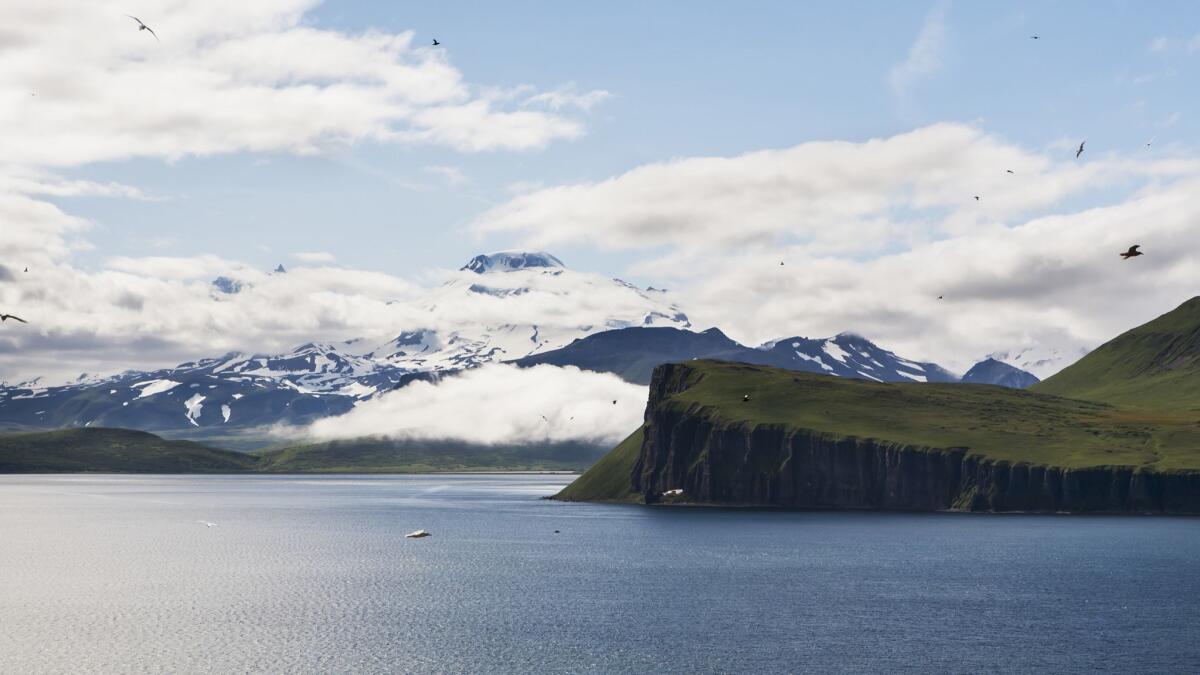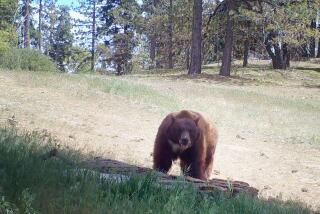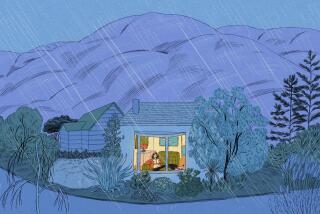My son loved the great indoors. Play outside? Pshaw. Then we went to Alaska

I called them “The Great Indoorsmen.”
My sons grew up gaming. Computer nerds. Addicted to their screens.
My husband and I are nothing like them. We like walking, running, hiking, biking. Whatever the endeavor, we love being outdoors.
When they were very young, we made them go with us. When they were older, we cajoled and bribed. Finally, we gave up the fight. But we never gave up inviting them.
“Hey,” one of us would say, “we’re going to take a walk on the beach. Want to come?”
They would glance up from their screens. Sometimes they even looked a bit apologetic. But the answer was always the same. “No, thanks.” It was good they added the “thanks.”
The hard truth was that they hated going outside. So when we offered a trip as a present to celebrate his high school graduation, Daniel, our older son, surprised us by choosing Alaska.
It wasn’t on my list, but I hoped it might get him closer to nature. I researched it and chose a trip that would take us across the southern edge of the Alaska peninsula, along the chain of the Aleutian Islands and across the Bering Sea to Siberia.
It was labeled an “expedition” trip, so I knew we would spend most of our time on land and at sea, not in our cabins. This was our big chance.
The first few days of our adventure began with dressing for the cold. In July, the highs hovered around 48 degrees. Even in these temps, the crew offered meals outside, and surprisingly, my son wanted to take advantage of this.
“What is it about this air?” he asked one evening.
“It’s fresh?” I suggested.
He said, “Fresh air, yeah.”
We were onto something.
Along the coast we were lucky enough to stand on a hill from which we watched Kodiak bears fishing for trout in a stream. The crew told us to be quiet and motionless so we wouldn’t scare them or interrupt their natural environment.
After an hour of silent viewing, Daniel whispered, “I love how you have to be so still.” It struck me that this was probably one of the few times in his life when he wasn’t multitasking and his brain wasn’t bombarded with constantly changing images.
Later in the week, we floated in rubber boats to view the millions of arctic birds that make their home along the Aleutian chain. Wind and saltwater sprayed in Daniel’s face, but he refused to wear hat or gloves. He dragged his fingers in the cold water.
When a fellow passenger expressed concern that he might be freezing, Daniel replied, “Everything feels so alive.”
He was getting it.
When we landed on the Chukotka peninsula, native Russians greeted us. Daniel spent two hours on the frigid beach studying a walrus carcass that the subsistence fisher folk had harvested that morning.
The group entertained us with a heritage show. Daniel, who had researched throat singing for a history project, listened intently as a woman demonstrated the art, which she had learned as a child. On the way back to the boat he said, “It’s so different than learning stuff online.”
When we returned from this trip, life returned to normal, and Daniel returned to his screens.
But during his first winter at college in Minnesota, he called me. Because he rarely called, I thought something was wrong.
“Are you OK?” I asked.
“Mom!” he screamed over the phone. “The snow is amazing. It’s like a whiteout here! I’m going to put you on Facetime!”
When the screen turned on, I saw how the white of the snow blocked out the view of campus he was trying to show me. When he turned the camera on himself, I saw he was wearing a flimsy fleece and no hat.
“I’m going for a walk,” he said. “It’s too great out here to go inside.”
I don’t know whether the trip to Alaska converted him, but I think it may have helped. When we asked where he would like to go next, we started saving our money.
His answer? Antarctica.
Departure Points explores the ways traveling changes us, whether it’s a lesson learned or a truth uncovered. You may submit a first-person essay of 700 or fewer words to travel@latimes.com using “Departure Points” in the subject line. Please include your first and last names and your contact information for editorial consideration.
More to Read
Sign up for The Wild
We’ll help you find the best places to hike, bike and run, as well as the perfect silent spots for meditation and yoga.
You may occasionally receive promotional content from the Los Angeles Times.






